
Classic Costa Rica Itinerary
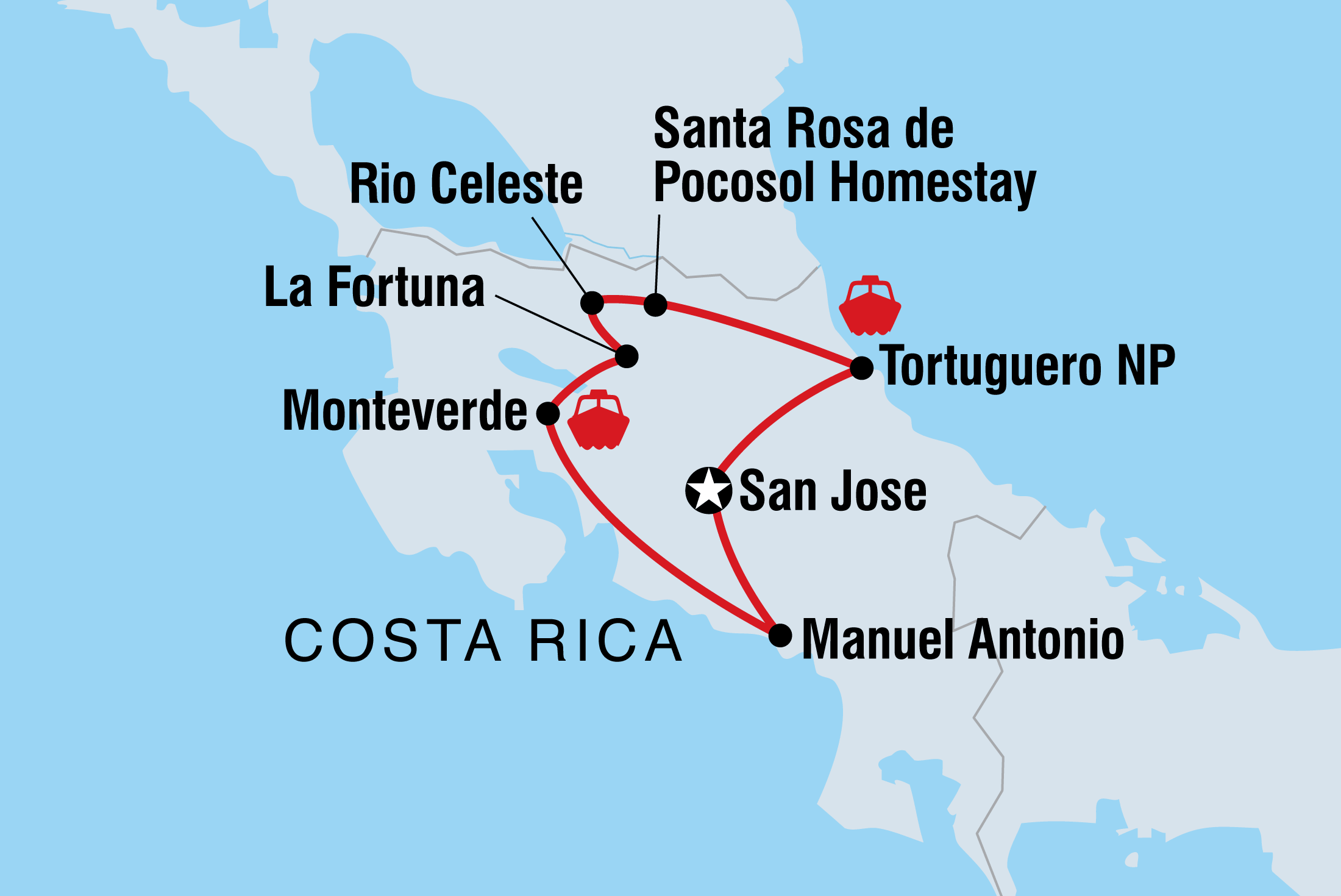


Hola! Welcome to Costa Rica. Your adventure starts in San Jose – with over a third of the country's population living within its parameters, San Jose is packed with both people and culture. You’ll have a welcome meeting at 6 pm tonight to meet your local leader and fellow travellers. If you arrive early, why not visit the National Museum. This canary-yellow building houses everything from exhibits on pre-Colombian history to a garden filled with native butterflies. Early bird history buffs might be interested in the Pre-Columbian Gold Museum or the Jade Museum – both of which display a wealth of indigenous artefacts.
Leave the hotel this morning and descend to the Caribbean lowlands on a private transport that ends at the port of La Pavona. This rustic port is your entry point to Tortuguero National Park. When you arrive, hop aboard a small boat and take a ride into the depths of the Costa Rican wilderness. Arrive in the middle of this biodiverse area, where freshwater lagoons rest under the canopy of rainforest bordering the ocean. Many animals call this place home, including jaguars and turtles, so listen out for the sounds of the local wildlife as you fall asleep in your lodge tonight.
Today, you're free to explore the park at your own pace. If you're woken by the chattering of the forests birds, why not haul yourself out of bed for a sunrise canoe trip? It’s a magical way to see the maze-like canals of the park, and you can look out for otters and manatees in the morning light. Tortuguero National Park was established in 1970 and is now home to 13 of Costa Rica’s 16 endangered mammals. Among them are manatees, ocelots and jaguars, as well as over 300 bird species. This is also the nesting ground of the green turtle, which comes ashore to lay its eggs on the sandy beaches, and the critically endangered hawksbill turtle, loggerheads and giant leatherbacks. During the day, you might want to return to the park’s walking trails or relax in your lodge. Many species are particularly active at night, so if you wish, you can head out in the evening on a turtle watching tour, with part of the cost supporting a program aimed to patrol the beach for poachers.
Bid farewell to the evergreen rainforest this morning and make the journey to Santa Rosa de Pocosol. Today, you’ll have a memorable homestay experience, but as the family you'll be staying with doesn’t speak much English, your leader will conduct an informal Spanish lesson on the drive. This afternoon, you’ll have the option to take a soap-making workshop or a guided hike to a nearby waterfall. In the evening, head back to your homestay for a cooking lesson – some of the dishes you make will be part of tonight’s dinner!
After having breakfast with your host family, continue your journey to the Rio Celeste region, which is part of the Guatuso town. This northern part of the country is characterized by rural community-based tourism. Before reaching this next paradise of birds and tranquil surroundings, make a stop to visit an indigenous Maleku community. Here, you'll meet the locals and share a traditional Maleku meal with them. Listen to stories about their history, culture, and the challenges the community faces in modern Costa Rica. With only 650 people left, the Maleku Indigenous community is the smallest in Costa Rica. Both the community and the country share a common goal of reforestation, working together to regenerate forests and plant fruit trees, which help encourage animals to return to their natural habitats.
Today is as clear as the Costa Rica air, and with plenty of optional activities available, you won’t be short of things to do! How about a guided tubing excursion at Rio Celeste? The light-blue waters of the river are generally off-limits to travellers, but you’ll have the opportunity to float along the water in an inflatable doughnut and spend the day lazing along the river. Those who prefer a nature tour on foot might like to take a 3-hour hike along the Rio Celeste through the jungle, with a guide who will help you spot howler monkeys, crocodiles, river otters and an abundance of tropical birds.
Beneath the watchful eye of the immense Arenal Volcano lies La Fortuna – a sleepy town with an abundance of hot springs and natural pools to enjoy. This is your destination today and when you arrive, you’re free to choose your own activities. Perhaps grab some fresh fruit in town, hop in a taxi to the entrance and then hike to La Fortuna waterfall for a swim beneath the cascading waters that spill out of the towering jungle. In the evening, why not grab a classic local dinner with your travel buddies? Chifrijo (fried pork, salsa, beans and tortilla chips) is a great dish to try.
Enjoy a free day to explore La Fortuna as you wish. The region offers a range of sights such as stunning lush forest, rare plants, animal watching and water-based sports on the lake. The volcano’s inner workings also mean that the area has plenty of thermal springs where hot, lava-heated water gushes to the surface. These springs, often surrounded by foliage, make the ideal place to relax. Active types could try stand-up paddleboarding on Lake Arenal with the incredible backdrop of the volcano and rolling green hills. Animal lovers will have a good chance of spotting sloths, monkeys, crocodiles and basilisk lizards skipping across the water on a boat tour of Cano Negro Reserve. Have a chat with your leader about the options available.
A morning of travel by bus and boat leads to incredible Monteverde. Settled by North American Quakers in 1951, this area was initially used as an environmentally conscious agricultural community and is now a biological preserve. The forest has near-constant cloud cover, providing consistent rainfall, which also gives the area an enchanted feel. After checking in to your hotel, join your leader on a nature walk through the Monteverde Cloud Forest Reserve, looking out for hummingbirds, quetzals, monkeys and even lazy sloths among the mist.
Make the most of your free time in lush Monteverde. Maybe see a different perspective on the forest by walking through the canopy on suspension bridges, or perhaps watch butterflies at play in the Butterfly Garden. More than 2000 species of plants, 320 bird species and 100 different types of mammals call Monteverde home, and no matter what you choose to do, you should keep an eye out for the quetzal – one of the most elusive birds in the world. This evening, journey into the jungle for a wildlife excursion focused on the nocturnal animals. Meet with Intrepid Foundation partner, The Monteverde Conservation League, to explore the Children's Eternal Rain Forest – a private reserve founded in 1986 through fundraising efforts by children worldwide. Join up with a naturalist guide who’ll lead you through the forest and educate you on everything from the sounds to the species while also helping you spot the various frogs, insects and night birds among the trees.
Wedged between the beautiful Pacific coast and the national park, Manuel Antonio is a laidback town. Make your way there this morning, stopping along the way to join a local family in their home to prepare a traditional lunch and sip on local Costa Rican coffee. You'll have the chance to jump in and help, learning traditional techniques as the meal comes together! After lunch arrive at your accommodation and enjoy some downtime. Perhaps head to Espadilla Beach to watch the sunset over the Pacific Ocean.
Today, feel the soft crunch of foliage underfoot while you hike the trails of the national park on a leader-led nature hike. Keep one eye on the scenic views and the other looking out for the abundant wildlife. Monkeys, armadillos, sloths and hundreds of birds all live here. Later, spend some time on the beaches surrounding the national park, and maybe hire a surfboard to catch some waves at Playa El Ray. If you want to spot wildlife and keep active at the same time, consider paddling through the mangrove forest on a guided kayak tour. It’s not unusual for curious monkeys to climb right onto the boat to say hello, and you’ll likely see snakes, crocodiles and plenty of birdlife too. Just remember your insect repellent! In the evening, maybe take a sunset sail off the coast – watching the blue sky turn orange is a spectacular sight.
Today is free for you to do as you please. If you wish, you could return to Manuel Antonio National Park and continue your search for the solemn, white faces of the capuchin monkeys who live in the trees. Alternatively, why not kick-off your shoes and feel the sands of Manuel Antonio Beach between your toes? It’s easy to spend a whole day on this calm coastline. The towering green trees that line the coast provide solace from the sun, so this is a great place to sit by with a book (and maybe a guaro sour).
Bid farewell to the coast and return to San Jose via public bus this morning. When you arrive, you’ll be free to relax or wander the city at your own pace. In the evening, you might like to head for dinner with your fellow travellers and group leader and toast to a trip well travelled.
With no further activities planned, your trip comes to an end today and you’re free to leave at any time after checking out. If you’d like to extend you stay, just speak to your booking agent ahead of time.

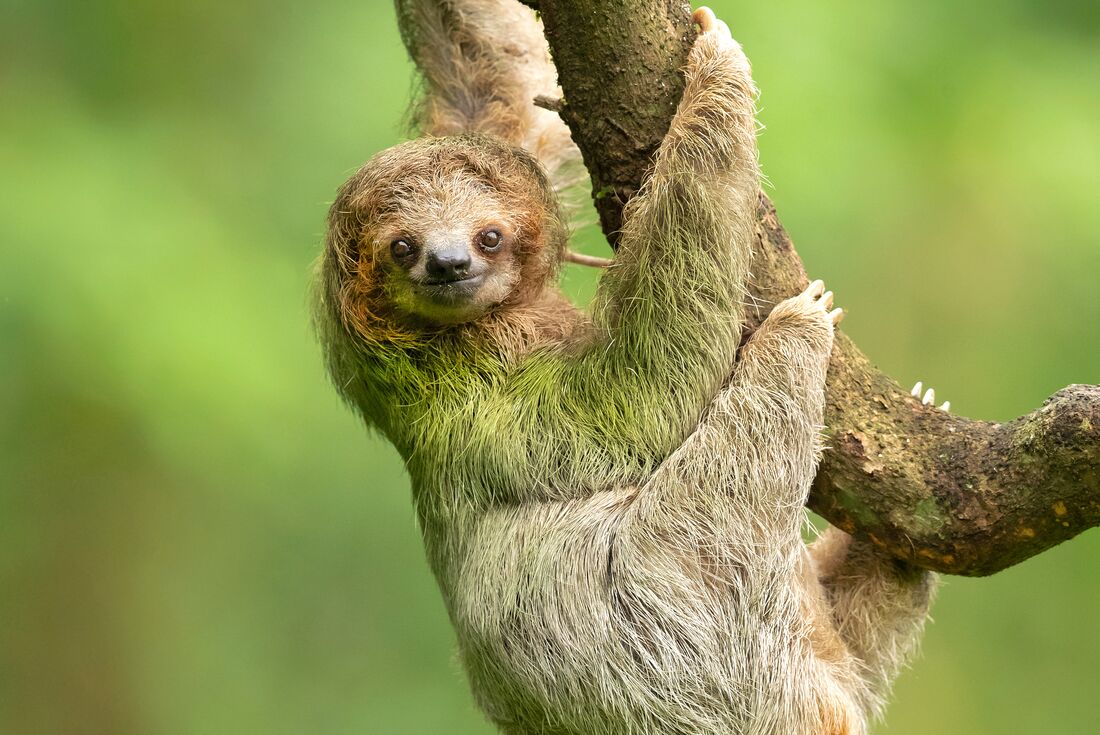
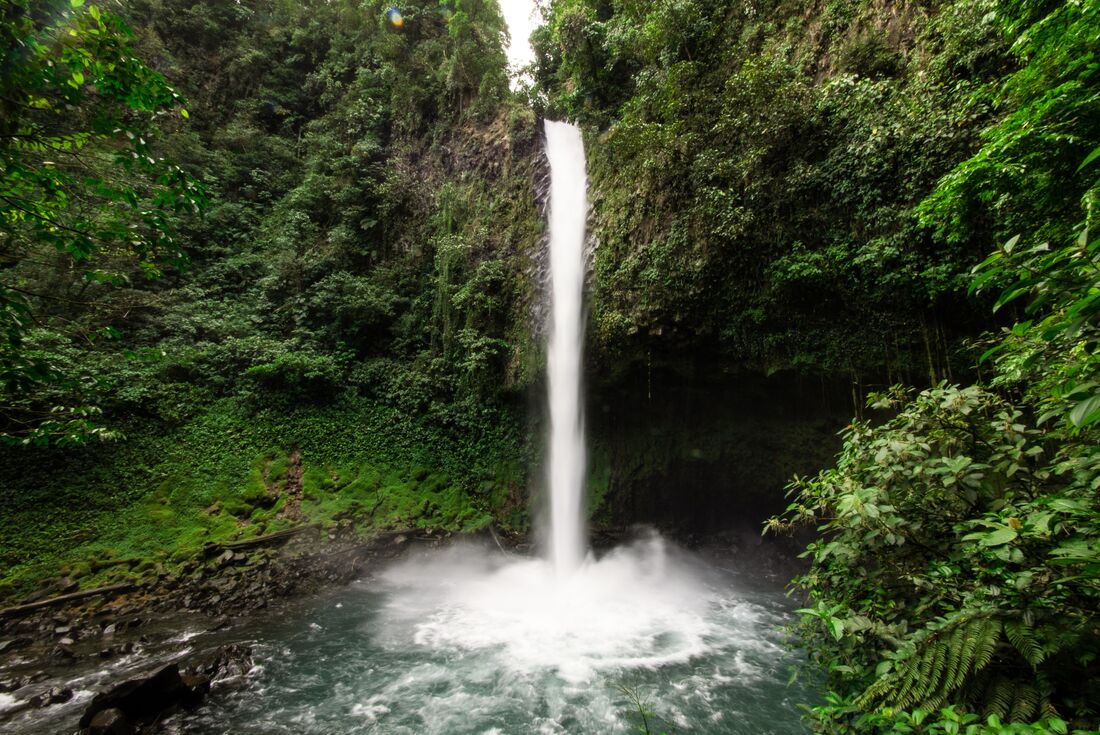
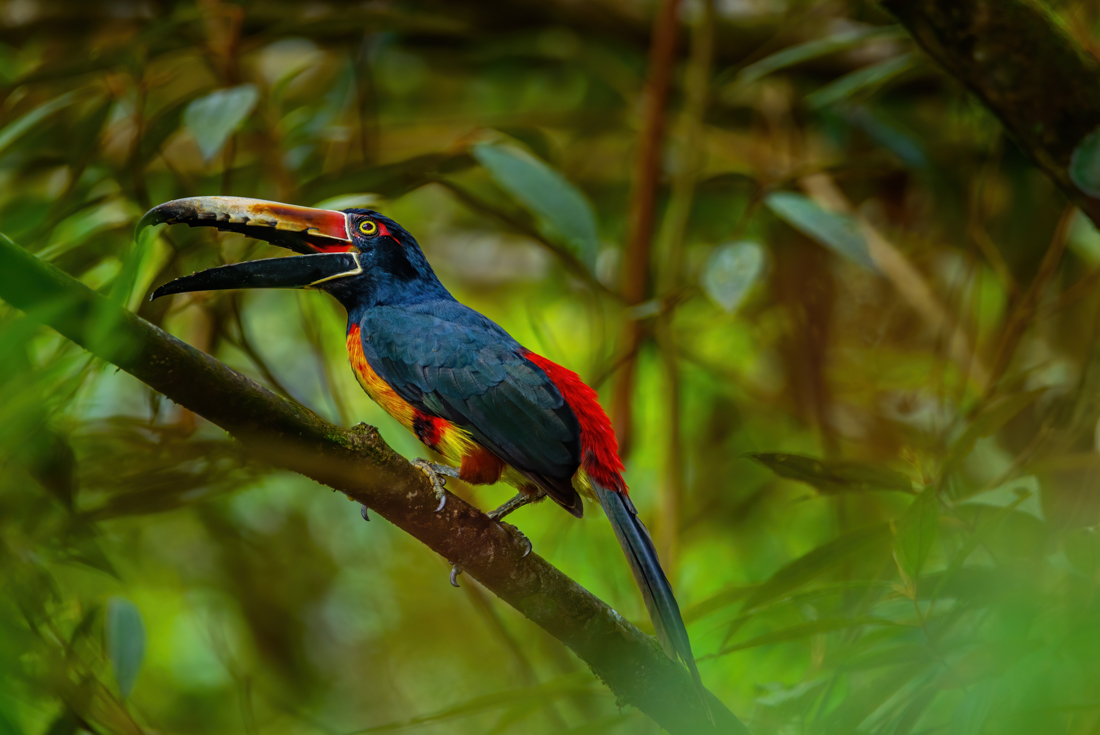
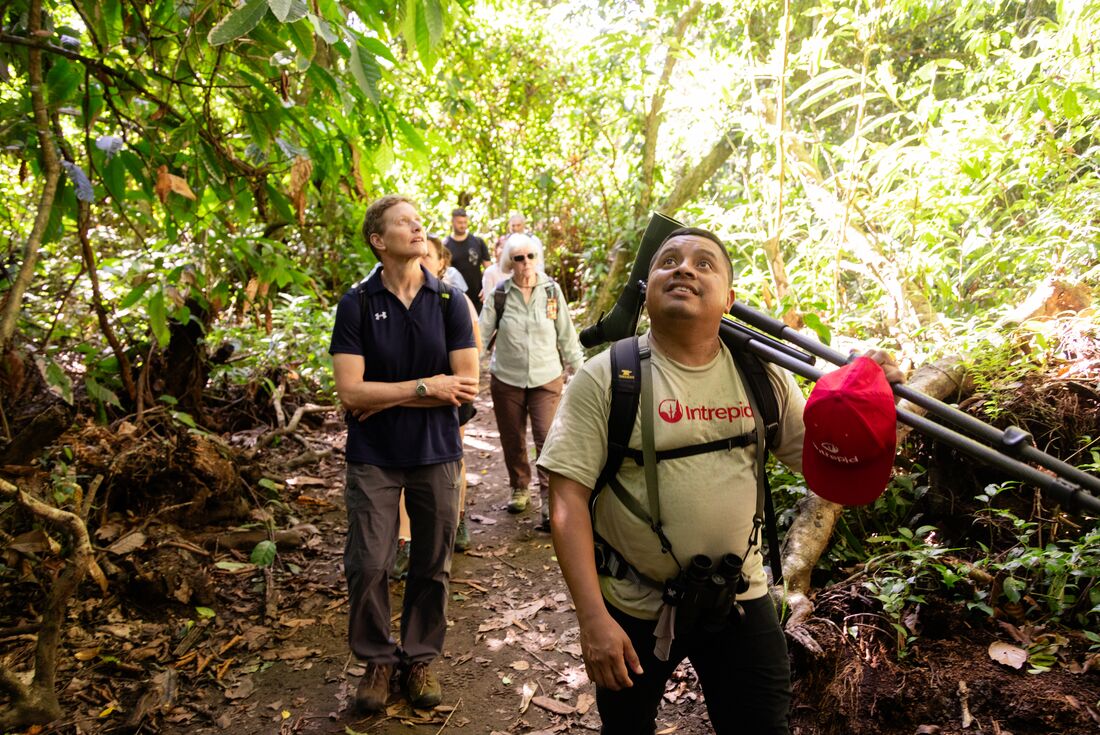
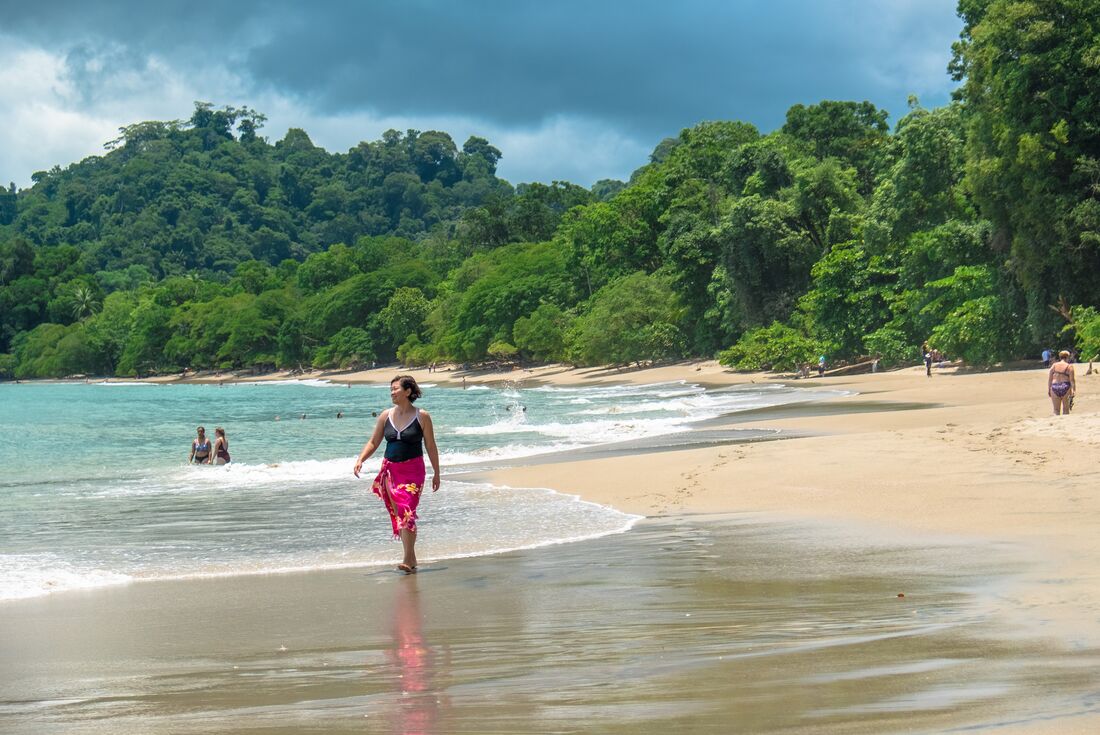
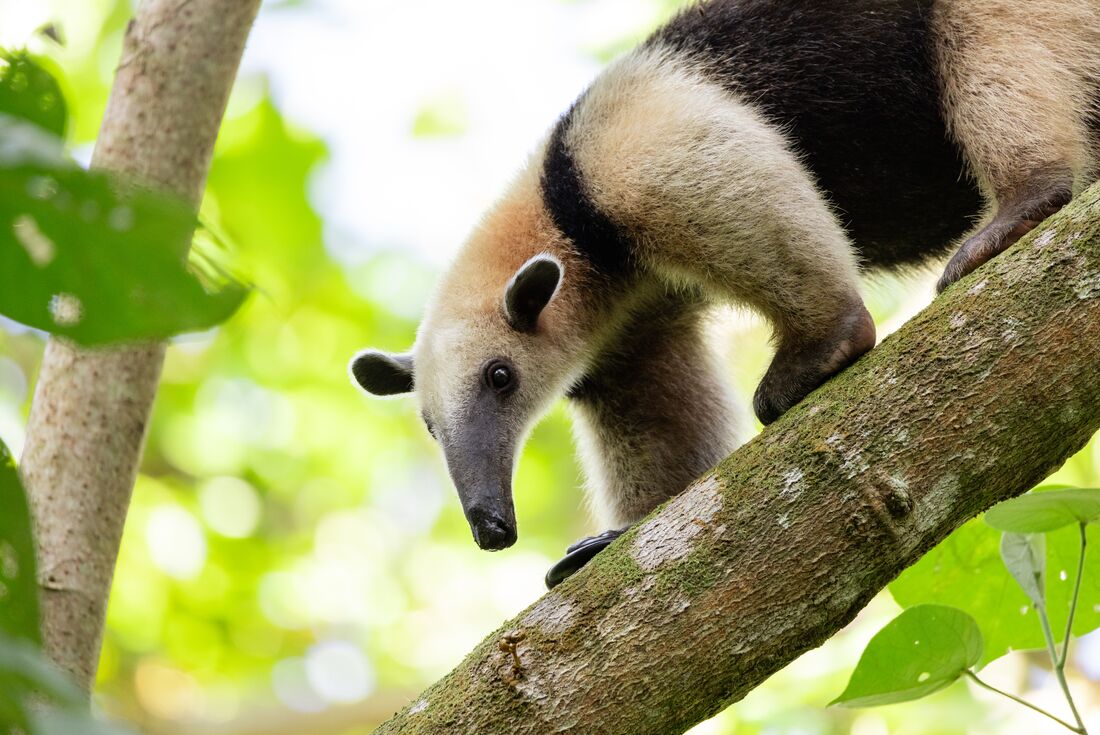
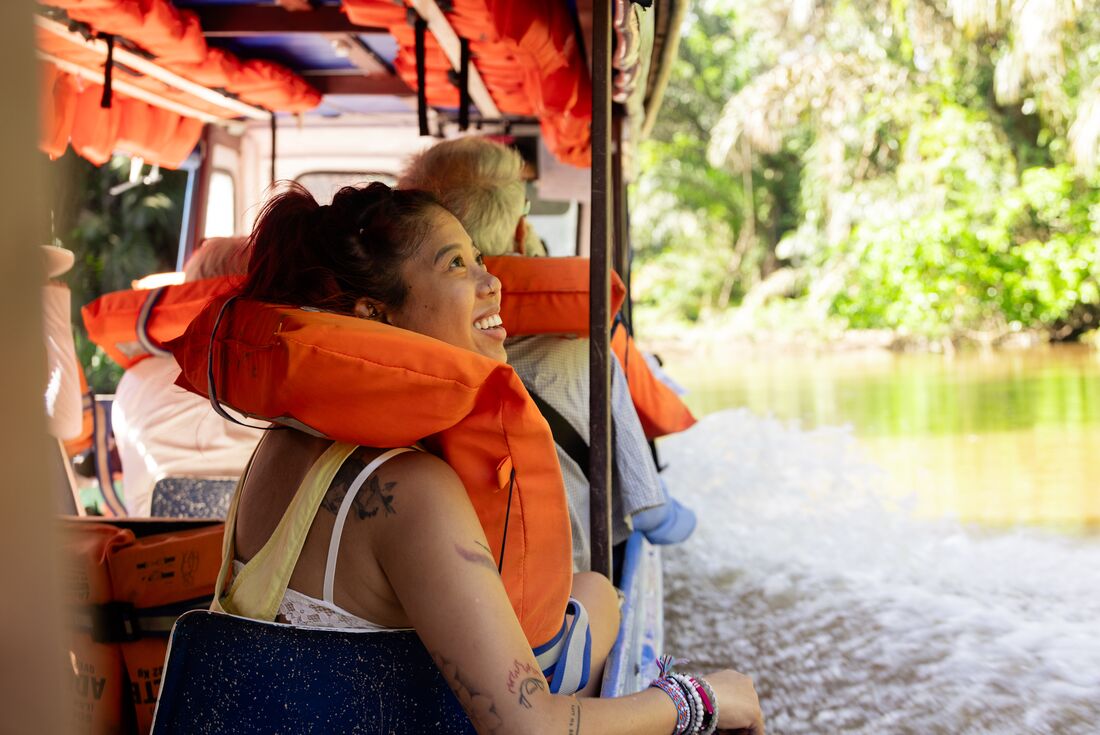
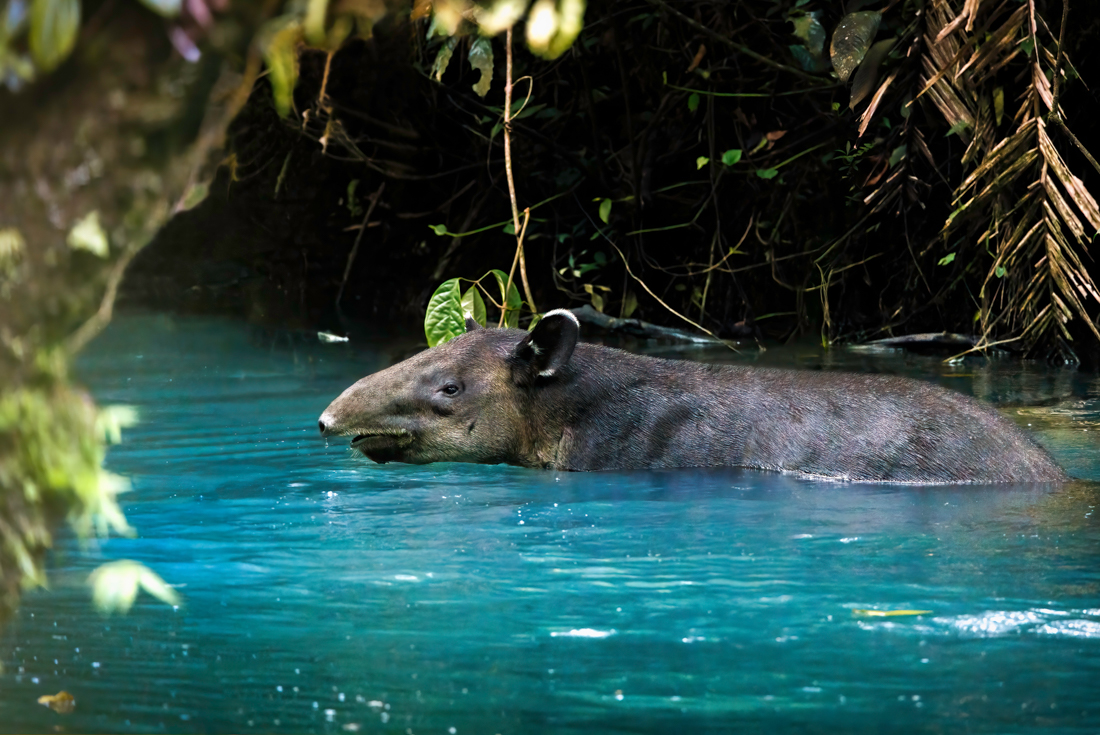
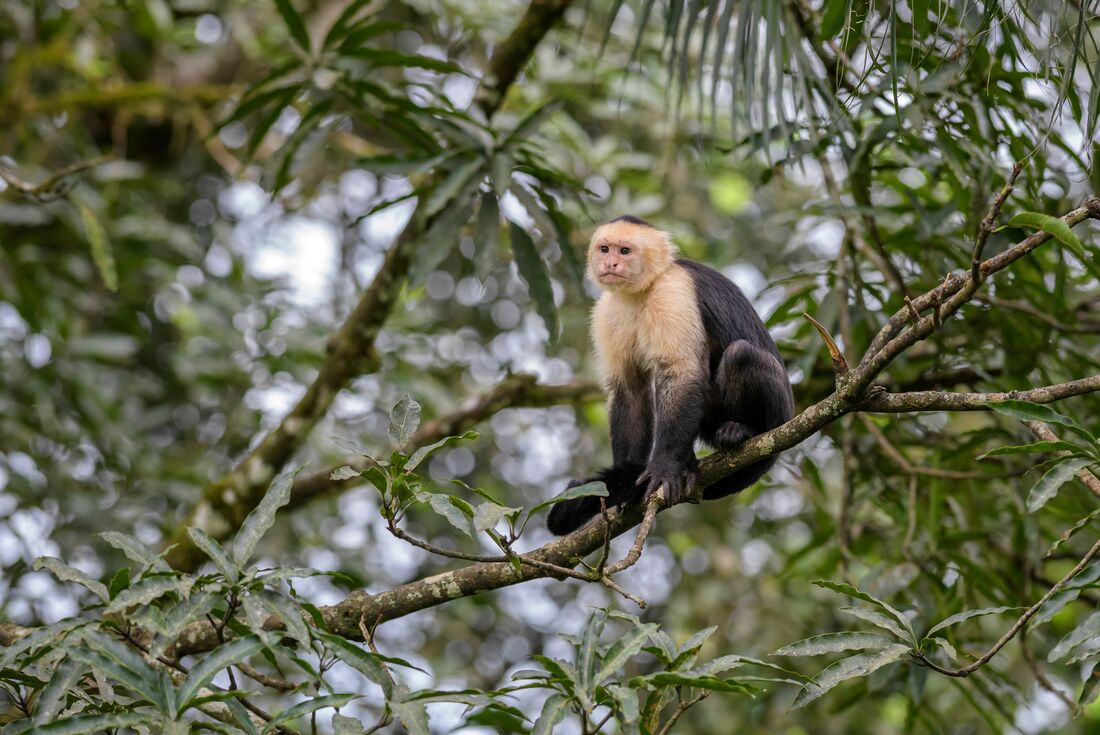
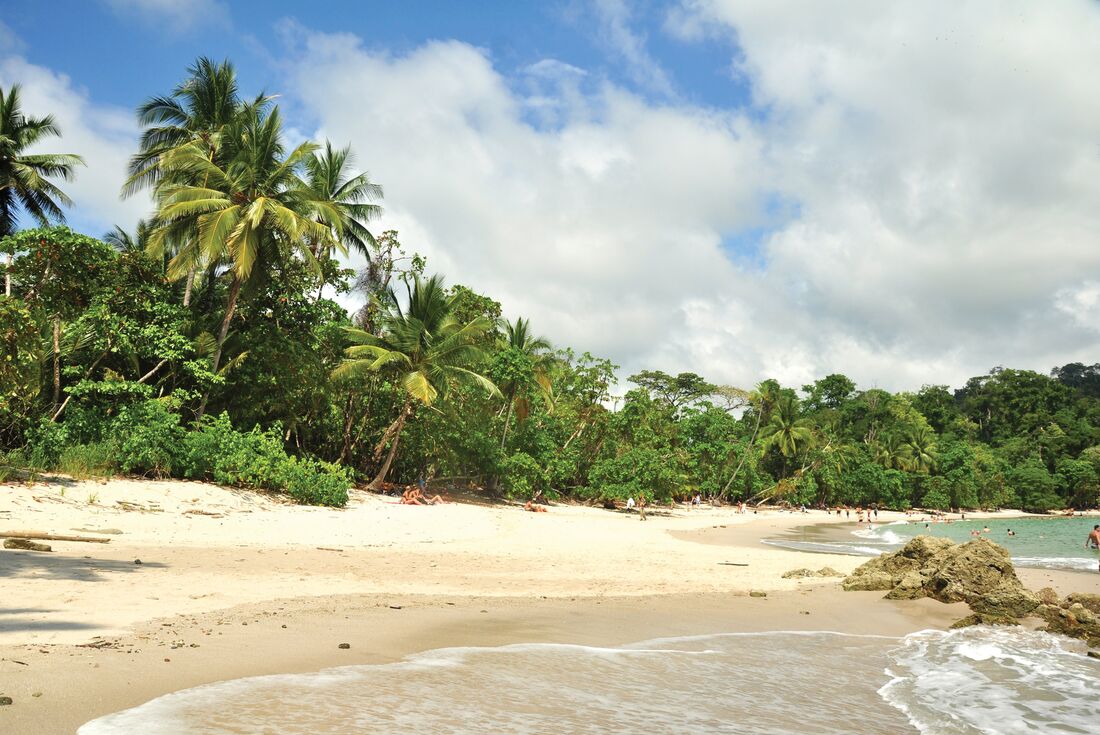

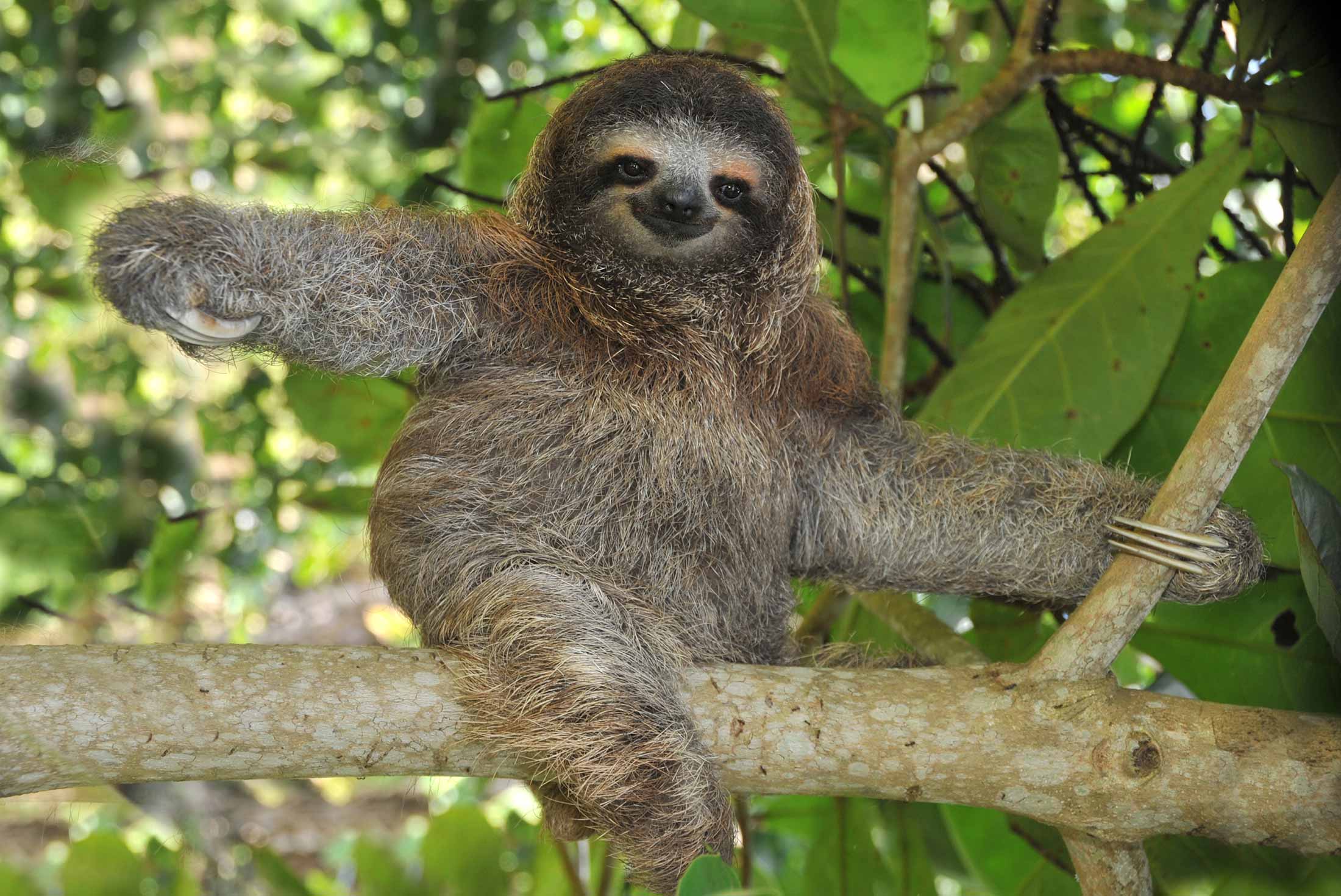
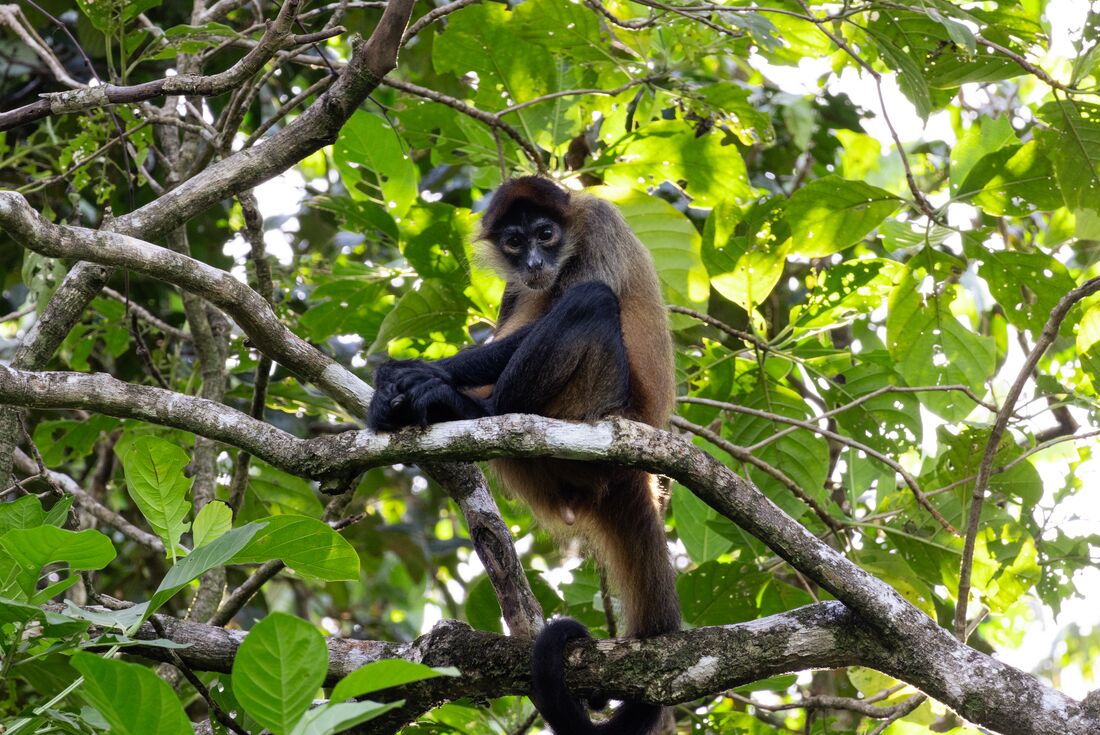
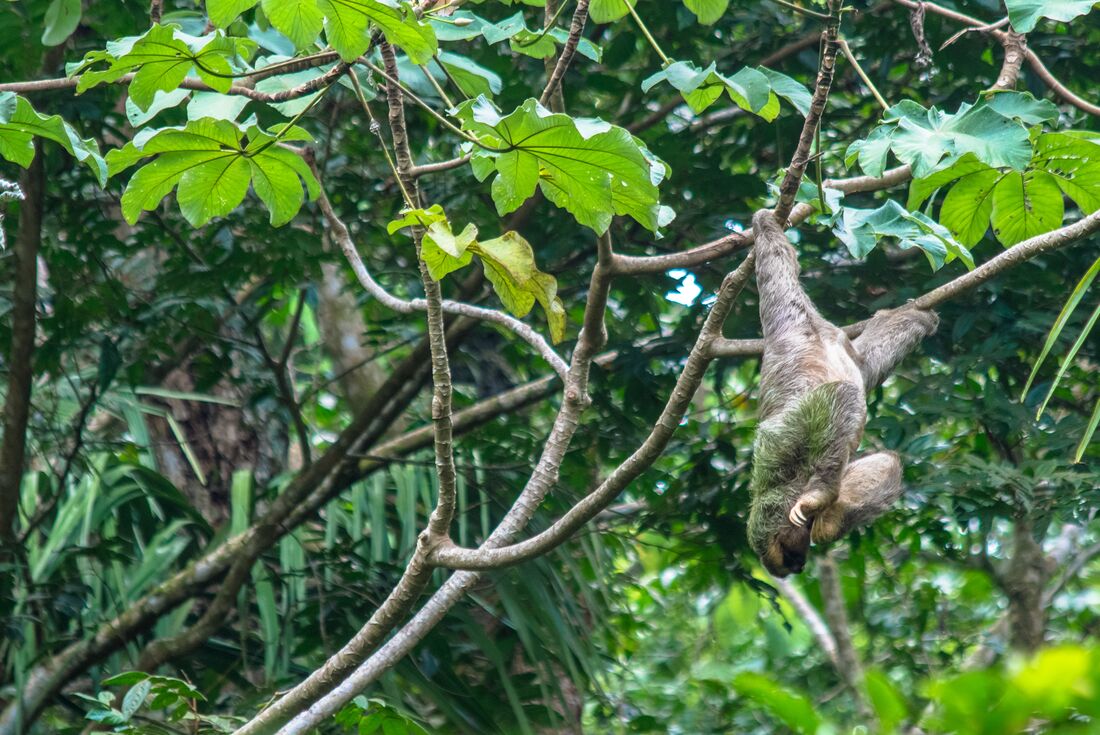
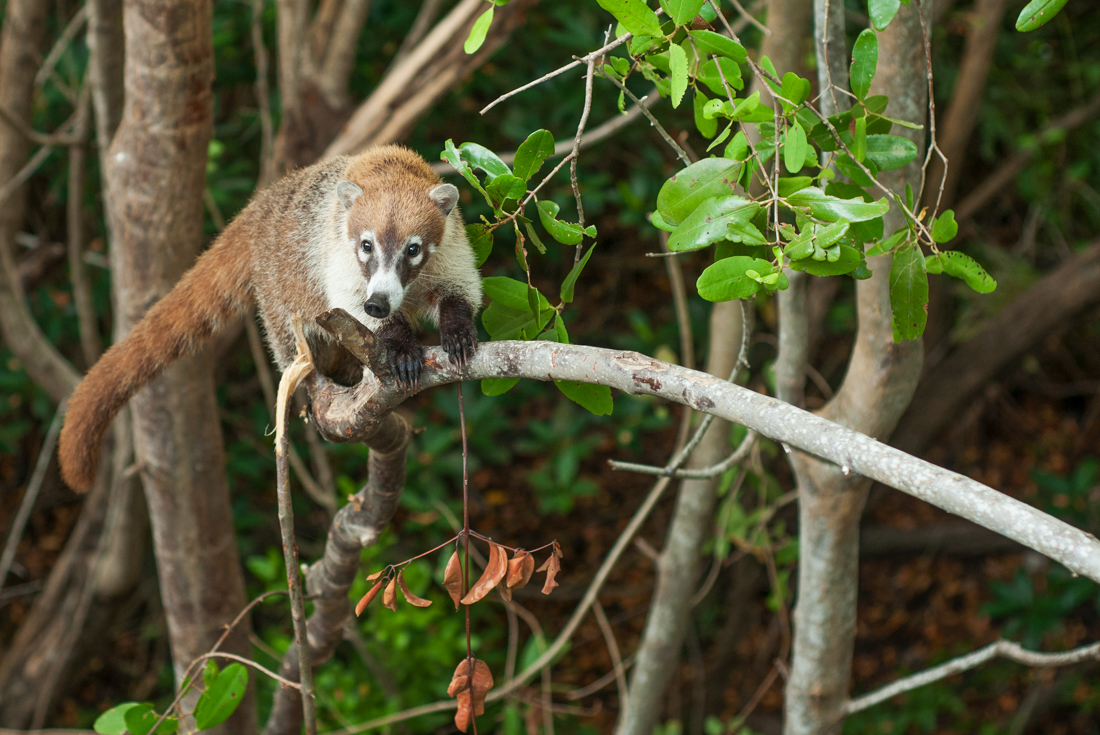
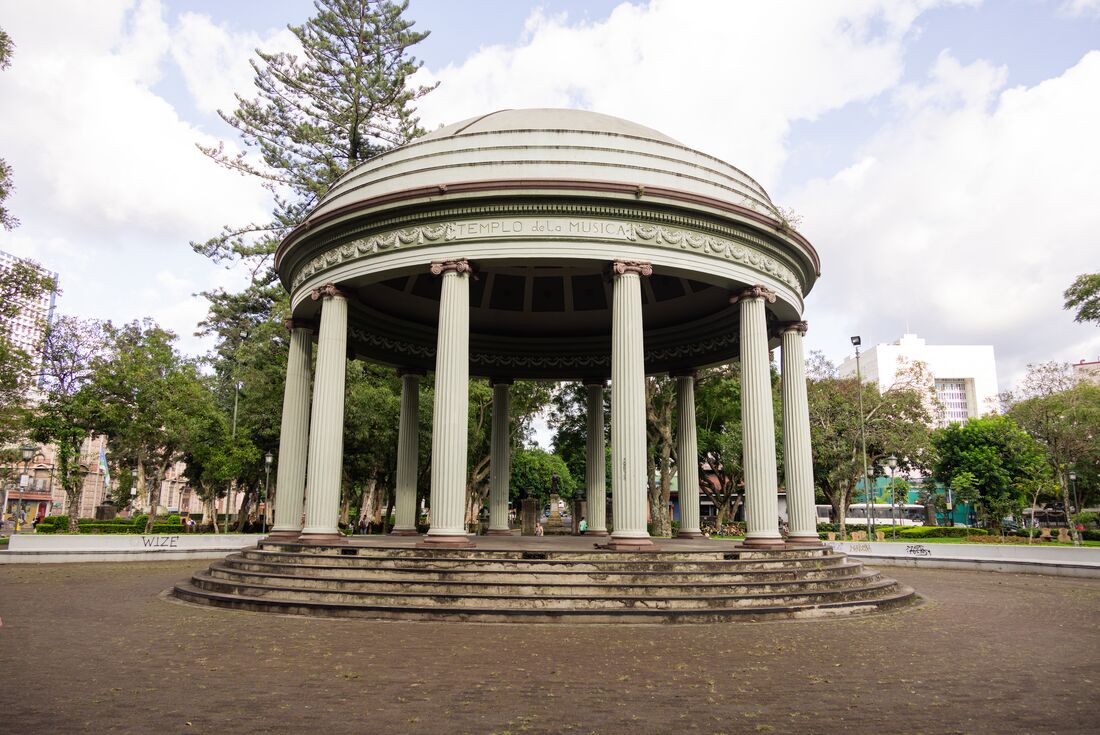
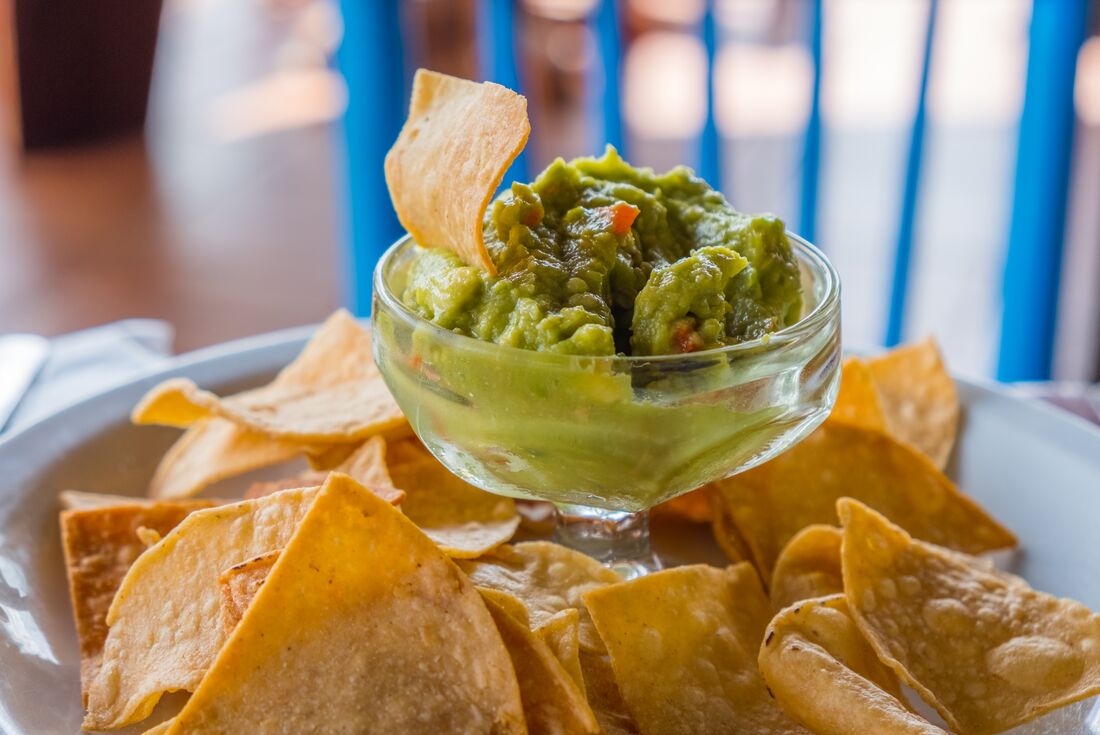
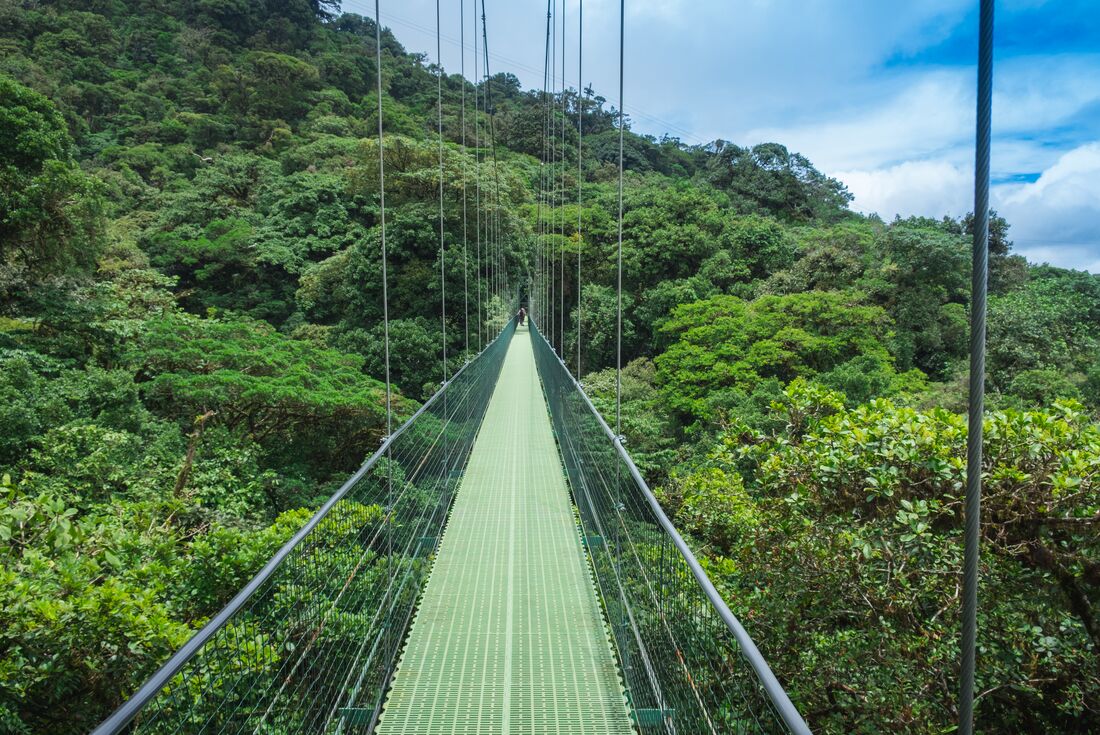
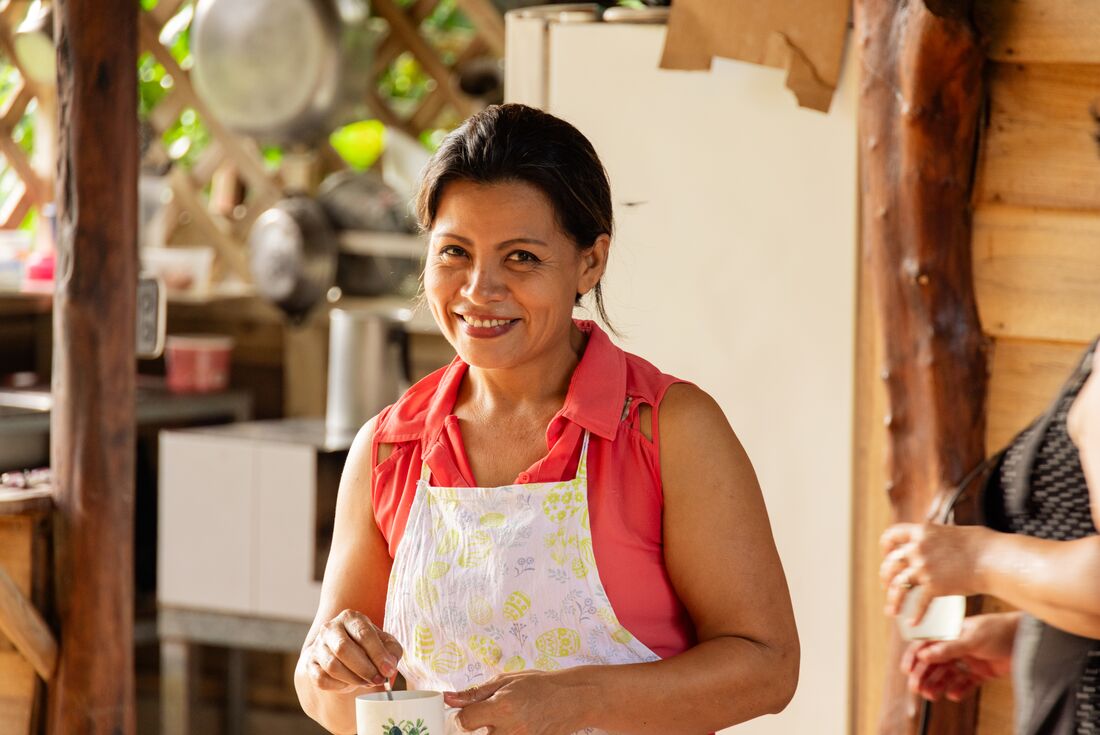
Tortuguero - Boat ride to Tortuguero
Tortuguero - National Park Entrance
Santa Rosa de Pocosol - Home-cooked Meal
Santa Rosa de Pocosol - Homestay experience
Leader-led Informal Spanish Lesson
Guatuso - Maleku Community Experience
Monteverde - Cloud Forest Entrance
Monteverde - Children's Eternal Rain Forest (The Intrepid Foundation Partner) Night wildlife walk
Manuel Antonio - Homecooked lunch
Manuel Antonio National Park - (Entrance fee)
Manuel Antonio National Park - Tour with a Naturalist Guide
Swap the concrete jungle for real jungle on a journey across waterways, hot springs, palm-lined beaches and rainforests to spot Costa Rica’s creatures such as capuchins, ocelots and sloths.
Spot long-nosed tapirs, white-faced capuchin monkeys, ocelots and three-toed sloths on this wildlife adventure – Costa Rica is home to many exotic animals, and this trip puts you in the perfect position to see them all.
Go deeper than the average tourist with a homestay in a quiet agricultural community – the perfect opportunity to experience local life and practice your Spanish. You’ll even have an informal cooking lesson with the locals to make dinner!
Hop aboard a riverboat to Tortuguero, a region popular for its canals that attract both human and wildlife visitors, most notably local green turtles, which come at night to nest on the sandy beaches.
Visit the indigenous Maleku community to share a traditional meal and learn about their way of life – this small tribe has big ambitions for regenerating local forests and natural habitats.
Rincon del Valle Hotel, 50m. East and 50 South of the College of Physicians, , Sabana Sur, San Jose, COSTA RICA, Phone: +506 22961001
Rincon del Valle Hotel, 50m. East and 50 South of the College of Physicians, , Sabana Sur, San Jose, COSTA RICA, Phone: +506 22961001
1. Full passport details are required at the time of booking in order to purchase entrance tickets to Manuel Antonio National Park. Delays to provide this information may result in changes to your itinerary and we will not be able to guarantee entry. Details provided must be accurate as per your passport bio page.
2. Your adventure begins with a welcome meeting at 6 pm on Day 1. There are no activities planned for the final day so you may depart at any time.
3. A single supplement is available if you’d prefer not to share a room on this trip. The single supplement applies to all nights on your trip and is subject to availability. Please speak to your booking agent for further information.
4. Please be careful when booking flights to/from San Jose; make sure you fly into/out of Juan Santamaria International Airport [SJO]. Please do not book flights to/from Norman Y. Mineta San Jose International Airport [SJC] as this is located in California, United States.
While we always endeavour to provide the best possible holiday experience, due to the nature of travel and the areas we visit sometimes things can and do go wrong. Should any issue occur while you are on your trip, it is imperative that you discuss this with your group leader or local representative straight away so that they can do their best to rectify the problem and save any potential negative impact on the rest of your trip.
We recognise that there may be times when your group leader or local representative may not be able to resolve a situation to your satisfaction - if this is the case, please ask the group leader or local representative to speak to their direct manager.
You may also choose to provide details in your online feedback, which we ask you to complete within 30 days of the end of your trip. Please do be aware that it is very difficult for us to provide any practical help after the trip is completed, so informing us while still travelling will give us the opportunity to resolve the issue in real-time., For general contact details please use the following page: https://www.intrepidtravel.com/contact-us, In case of a genuine crisis or emergency, you can reach our local office on the numbers below:
, Intrepid local operator: Available for phone call on +506 4600 6000
Many of the activities (both included and optional) on this trip take place in the great outdoors. This means you'll need to be prepared to deal with insects and occasionally rustic conditions. It's all part of immersing yourself in this natural paradise., Costa Rica is generally hot year-round, and from May to October can be pretty wet too. At nighttime and in locations at higher elevations it can get chilly. Protect yourself from the sun, bring light clothing you can layer and a waterproof jacket, and stay hydrated. Please carefully consider which time of the year you'll feel most comfortable travelling., There are many opportunities to get active on this adventure. Some of the optional activities require a moderate level of fitness and sturdy walking shoes. If you'd prefer to take it easy, however, there are plenty of other things you can do instead., The homestay is a wonderful opportunity to witness everyday local life. A hearty homecooked dinner and breakfast will be served during your stay, which can be a lot more basic than what you're used to., With so much to see and do, Costa Rica can sometimes be expensive. Expect to pay more than you would in other Central American countries for a lot of things.
Swap the concrete jungle for real jungle on a journey across waterways, hot springs, palm-lined beaches and rainforests to spot Costa Rica’s creatures such as capuchins, ocelots and sloths., Spot long-nosed tapirs, white-faced capuchin monkeys, ocelots and three-toed sloths on this wildlife adventure – Costa Rica is home to many exotic animals, and this trip puts you in the perfect position to see them all., Go deeper than the average tourist with a homestay in a quiet agricultural community – the perfect opportunity to experience local life and practice your Spanish. You’ll even have an informal cooking lesson with the locals to make dinner!, Hop aboard a riverboat to Tortuguero, a region popular for its canals that attract both human and wildlife visitors, most notably local green turtles, which come at night to nest on the sandy beaches., Visit the indigenous Maleku community to share a traditional meal and learn about their way of life – this small tribe has big ambitions for regenerating local forests and natural habitats.
All group trips are accompanied by one of our group leader or local representative. The aim of the group leader or local representative is to take the hassle out of your travels and to help you have the best trip possible. Intrepid endeavours to provide the services of an experienced group leader or local representative however, due to the seasonality of travel, rare situations may arise where your group leader or local representative is new to a particular region or training other group leader or local representative.
Your group leader or local representative will provide information on the places you are travelling through, offer suggestions for things to do and see, recommend great local eating venues and introduce you to our local friends. While not being guides in the traditional sense, you can expect them to have a broad general knowledge of the places visited on the trip, including historical, cultural, religious, and social aspects. At Intrepid we aim to support local guides who have specialised knowledge of the regions we visit. If you are interested in delving deeper into the local culture at a specific site or location then your group leader or local representative can recommend a local guide service in most of the main destinations of your trip.
TRAVEL ADVISORIES & ALERTS
We recommend that you check your government's foreign travel advisory for the latest information about the destination before you travel. You will also need to ensure that your travel insurance covers you for all destinations and activities on your trip. We also recommend saving the phone number for emergency consular assistance for your government’s consulate in the destination/s you’ll be travelling. Links to travel advisories and any current travel alerts for our trips can be found here: https://www.intrepidtravel.com/travel-alerts
PERSONAL SAFETY
Ensure you have a secure method of carrying your passport, phone, credit cards and cash while travelling such as a money belt. Leave all other high value items, including jewellery, at home Use safety deposit boxes at hotels to store your valuables when available and ensure your luggage is lockable. Be aware of the risk of pick-pocketing and petty theft. Exercise caution when walking at night, don’t walk alone and stick to well-lit streets wherever possible. Be vigilant on public transport and look out for your fellow travellers. Take precautions such as carrying your bag in front of you and never leaving personal items unattended.
LGBTQIA+ TRAVELLERS
Intrepid welcomes all LGBTQIA+ customers on our trips, however we operate in parts of the world that are less accepting. We support LGBTQIA+ customers to travel to these destinations and are committed to ensuring they face no discrimination on any part of the trip we control. We recommend you visit Equaldex (https://www.equaldex.com/) and your government's foreign travel advice for LGBTQIA+ travellers when choosing your trip., COSTA RICA
CRIME
Travellers have been the target of crime in Costa Rica, with main targets being popular tourists sites, airports, bus stations and public transport. Petty crime such as pickpocketing and bag snatching is common in downtown San Jose and in popular tourist areas. To protect yourself from crime, plan to arrive and depart the country in daylight hours, be alert to drink spiking and only use officially registered taxis. Credit card fraud is a risk as is counterfeit Costa Rican and US currency from street exchanges. Keep your card in view when making purchases and only change money at banks or official exchanges. Your leader can advise on the best ways to withdraw or exchange money on tour., PETTY THEFT AND PERSONAL SAFETY
While travelling there is always the risk of pick-pocketing and petty theft, particularly in the more touristy cities. We recommend that you exercise caution when walking alone at night and encourage you to walk together and only on main, well-lit thoroughfares. Be particularly vigilant on public transport. Simple measures like carrying your day pack on your front, not hanging your bag over the back of your chair or on the floor and wearing a money belt will reduce any chance that your valuables should go missing., MONEY WITHDRAWAL:
In order to avoid fraud and theft, it is advisable that you withdraw money from ATMs located inside banks or guarded shops during business hours only., LOCAL LODGINGS:
On this trip you will be staying in some restored houses and local lodges - these are one of the charms of this journey, but their staircases, balconies and passages etc may not always comply with western safety standards. Please do not expect elevators in these properties as they are preserved to their original state., SEAT BELTS:
Please be aware that local laws governing transportation safety may differ from those in your home country and not all the transport which we use is able to provide seat belts., FIRE PRECAUTIONS
Local laws governing tourism facilities in this region may differ from those in your home country and accommodation we use may not have a fire exit, fire extinguishers or smoke alarms., WATER SAFETY:
Please take care when taking part in any activities in the ocean, river or open water, where waves and currents can be unpredictable. It's expected that anyone taking part in water activities is able to swim and have experience in open water. All swimmers should seek local advice before entering the water.
PASSPORT
You’ll need a valid passport to travel internationally and most countries require your passport to have a minimum of 6 months validity, so remember to check the expiry date.
We need your passport information to get everything ready for your trip so it’s important that the information on your booking matches your passport exactly. Please take care to provide the correct details. We recommend carrying a copy of the photo page of your passport while travelling and leaving a copy at home with family or friends.
VISAS & ENTRY REQUIREMENTS
Many countries require a visa and obtaining the correct visa for your trip and any countries you may transit through is your responsibility. We recommend you check your visa requirements as soon as you have booked your trip. This will ensure you have time to prepare your documents and for your visa application to be processed. You can check the entry requirements for your nationality on your government's foreign travel advisories, consular websites or on our page here: www.intrepidtravel.com/visa-entry-requirements, COSTA RICA
There is no entry fee. If you exit Costa Rica overland, there is a US$9 departure tax. If you exit Costa Rica by air, departure tax typically included in the cost of your ticket.
Information not available.
Validity: 01 Jan 2026 to 31 Dec 2026
GENERAL HEALTH
All travellers need to be in good physical health in order to participate fully on this trip. For the safety and wellbeing of yourself and others, if you are unwell prior to travelling, please stay at home and contact us to make alternative arrangements.
When selecting your trip please make sure you have read through the itinerary carefully and assess your ability to manage and enjoy our style of travel. Please note that if in the assessment of our group leader or local representative a traveller is unable to complete the itinerary without undue risk to themselves and/or the rest of the group, we reserve the right to exclude them from all or part of a trip without refund.
You should consult your doctor for up-to-date medical travel information or for any necessary vaccinations before departure. We recommend that you carry a first aid kit as well as any personal medical requirements in their original packaging as they may not easily be obtained while travelling. If you are carrying medication, ensure you check your government's foreign travel advice for any local restrictions or requirements.
, INSECT-BORNE DISEASES
The risk of contracting insect-borne diseases increases in the wet season (April - November). To protect yourself, use insect repellent, wear long, loose, light coloured clothes and seek medical advice if you experience fever, headaches, a rash or muscle pain.
ZIKA VIRUS
Zika virus is present in Costa Rica. We recommend that you discuss your travel plans with your doctor prior to departure if you are currently pregnant or trying to conceive.
OTHER HEALTH RISKS
Protect yourself from other illnesses by only drinking boiled or bottled water, avoiding ice cubes, don't swim in freshwater sources, ensure your vaccinations are up to date and avoid direct contact with dogs and other animals., YELLOW FEVER
A valid international certificate of vaccination against Yellow Fever is required in many countries. You may need to present this on arrival at the airport or border crossing. Some countries will refuse entry if you are unable to present your certificate. It's also quite common for your home country to request a Yellow Fever certificate on your arrival back home. It is your responsibility to check with your doctor well in advance of leaving home about the Yellow Fever requirements for the countries you'll be visiting.
While travelling with us you'll experience the vast array of wonderful food available in this region. Your group leader or local representative will be able to suggest restaurants to try during your trip. To give you the maximum flexibility in deciding where, what and with whom to eat, generally not all meals are included in the trip price. This also gives you more budgeting flexibility. As a rule, our groups tend to eat dinner together to enable you to taste a larger variety of dishes and enjoy each other's company. There's no obligation to do this though.
DIETARY REQUIREMENTS
Please let us know your diet requirements before your trip starts.
Generally speaking, in bigger cities/towns vegetarians can expect a reasonable range of vegetarian venues and/or vegetarian options within tourist restaurant menus. However, vegetarianism is not the norm in this part of the world so options can be limited when eating at homestays, small local restaurants, street stalls, markets, etc.
More restrictive diet requirements (vegans, coeliac, gluten intolerance, fructose intolerance, lactose intolerance, etc.) can also be accommodated along this trip but you should expect a lesser variety than what you can expect at home. We recommend that, if possible, to bring your own supply of snacks with you.
For those on strict Kosher or Halal diets, we understand your dietary requirements are important, however, sometimes due to cultural and language differences these are not always easy to convey when you are travelling. Your guide will do their best to assist you in translating your needs when eating out, but please be aware that these diets are almost unheard of in much of the continent and the best they may be able to accommodate is no pork and shellfish. If this will be a concern for you you may need to consider opting for vegetarian or vegan meals for the included meals in your itinerary. We recommend researching kosher or halal options in your destination country prior to travel to see if you are able to buy snacks once there, otherwise consider bringing some from home.
SPENDING MONEY
When it comes to spending money on the trip, every traveller is a little different. You know your spending habits better than we do, so please budget an appropriate amount for things like optional meals, drinks, shopping, optional activities, and laundry. Make sure you have read the itinerary and inclusions thoroughly so you know what is included in the trip price and what you may need to pay for while travelling. , COSTA RICA
The official currency of Costa Rica is the Costa Rican Colón (CRC). ATMs are available and CRC can be withdrawn. USD cash (small bills) is widely accepted, but not for taxi fares. You can pay with major credit and debit cards at many hotels, restaurants and stores., TIPPING
Tipping can be an appropriate way to recognise great service when travelling. While it may not be customary in your home country, it is an entrenched feature of the tourism industry across many of our destinations and is greatly appreciated by the people who take care of you during your travels. It is always best to avoid tipping with coins, very small denomination notes, or dirty and ripped notes, as this can be regarded as an insult rather than the goodwill gesture it is intended to be., We recommend budgeting approximately USD 75 per person to tip drivers and service providers for activities included in this trip. This doesn’t include a tip for your leader., YOUR GROUP LEADER OR LOCAL REPRESENTATIVE
Tipping your group leader or local representative is highly appreciated if you feel they’ve provided outstanding services throughout your trip. The amount is entirely a personal preference; however, as a guideline, the recommended amount is 4-7 USD or EUR per traveller per day (in a currency relevant to your destination). Of course, you are free to tip more or less as you see fit, depending on your perception of service quality and the length and involvement of your group leader or local representative on your trip., CONTINGENCY FUNDS
We try to plan for every eventuality, but there are still some things beyond our control. We reserve the right to change an itinerary after departure due to local circumstances or a Force Majeure Event. In such emergency circumstances, the additional cost of any necessary itinerary alterations will be covered by you. Please note we are not responsible for any incidental expenses that may be incurred as a result of the change of itineraries including but not limited to visas, vaccinations or non-refundable flights. Make sure you have access to an extra US$500 for emergencies (e.g. severe weather, natural disasters, civil unrest) or other events that result in unavoidable changes to the itinerary (e.g. transport strikes or cancellations, airport closures). Sometimes these things necessitate last-minute changes to enable our trips to continue to run, and as a result, there may be some extra costs involved. The recommended amount is listed in USD for the relatability of universal travellers, however, local currency may be needed once in the country to cover these costs.
Most travellers prefer to take a small to medium wheeled suitcase, which is a great size for the packing capacity in our private vehicles. You will need to be able to carry your own luggage, handle it at airports, take in/out of accommodation and perhaps even walk short distances. We recommend you pack as lightly as possible.
You'll need to bring a day pack/bag for activities and day trips.
In terms of weight, airlines generally allow a maximum of 15-20kg for check in luggage and a maximum of 5kg for carry on. Check with your airline for baggage allowances.
Other than the items and clothing you always need on a trip, below we have listed packing suggestions specific for this trip:
ESSENTIAL:
- Sun protection – sunhat, sunglasses, sunscreen (reef-safe sunscreen for swimming). The UV index can be very high in this region, therefore it is essential you protect yourself adequately from the sun.
- Clothing for hot and humid weather: Lightweight, breathable quick-drying clothing.
- Clothing for cool nights/high altitudes, rainy days, and to protect against bugs: A lightweight waterproof jacket, pants, clothing you can easily layer.
- Closed-in walking/hiking shoes. Closed-in shoes will help to protect your feet from mud, cuts and scratches and bug bites.
- Personal travel documents which may include a passport, visa, driver's license, travel insurance, flight tickets and your Essential Trip Information. Photocopies of these documents stored separately from the originals will be handy. While not valid, a photocopy of your identification makes it much easier to obtain replacements if necessary.
RECOMMENDED:
- Water bottle. We recommend at least a 1.5 litre capacity. Clean, filtered water is available for free in many hotel lobbies. The sale of bottled water contributes to an enormous environmental problem around the world. In addition to the water in bottles, the production of a 1 litre plastic bottle takes 2 litres of water and 200ml of oil. A large proportion end up in limited landfill or discarded in waterways and natural environments
-Electrical adapter plug (Central American countries use plug types A & B which are standard throughout North America)
-Personal medical kit. Your guide will carry a large kit but we recommend you carry items such as mild pain killers, electrolyte powders and Band-Aids.
-Watch/Alarm clock or phone that can be used for both
-Swimwear
-Travel beach towel
-Water-proof bag for your phone
-Tissues &/or toilet paper &/or wet wipes
-Insect repellent
-Camera with a spare memory card, charger &/or batteries
OPTIONAL:
-Earplugs to guard against a potential snoring room-mate
-Phrasebook
VALUABLES:
Please try to avoid bringing unnecessary valuables, and use your safe if available. It’s also a good idea to purchase a money belt or pouch that is easily hidden.
LAUNDRY:
Laundry is available at many hotels and towns during this trip, although you might need to wait for a two-night stop in order to make sure you get it back in time. While laundry at hotels is usually charged by the item, laundromats usually charge by the kilo, which is generally inexpensive (about USD 2 per kilo).
Information not available.
Intrepid won't tolerate any kind of violence, harassment (whether physical, verbal or sexual), or disrespect toward fellow travellers, our teams or local communities.
To ensure the wellbeing of everyone on the trip, decisions made by your group leader are final.
Romantic relationships between travellers and group leader or local representative are not permitted while on trip.
Any behaviour that prevents your leader from continuing the itinerary as planned, breaks local laws or opposes any of these guidelines may result in Intrepid denying your booking or removing you from the trip.
If something concerns you during your travels, please speak to your group leader immediately. Alternatively, you can contact us on the emergency contact number detailed in the Problems and Emergency Contact Information section of this Essential Trip Information.
The style of accommodation indicated in the day-to-day itinerary is a guideline only and may change. On some occasions, alternative arrangements may need to be made due to the lack of availability of rooms in our preferred accommodation. In these cases, we will use a similar standard of accommodation.
Throughout the trip, we request that our properties prepare rooms in time for our arrival, especially if we're arriving prior to normal check-in time. However, this isn't always possible which means we won't be able to check-in immediately on arrival at some hotels. Instead, we can store our luggage and explore our new destination or on some trips, have use of shared day rooms until all rooms are available.
Information not available.
Travel insurance is compulsory on all our trips for those travelling internationally. We require that, at a minimum, you are covered for medical expenses, including emergency repatriation. If you are travelling within your home country or region, please confirm before travel that you are entitled to access the public medical system easily should an accident occur. We strongly recommend all travellers have a policy that also covers personal liability, cancellation, curtailment and loss of luggage or personal effects. For international trips, you will not be permitted to join the group until evidence of travel insurance and the insurance company's 24-hour emergency contact number has been sighted by your group leader or local representative.
If you have credit card insurance, your group leader or local representative will require details of the participating insurer/underwriter, the level of coverage, policy number, and emergency contact number, rather than the bank's name and your credit card details. Please contact your bank for these details prior to arriving in-country.
For travellers who reside within the European Union, Switzerland or the USA, the requirement to purchase travel insurance cannot be compulsory. However, the purchase of travel insurance is still highly recommended, and each country you visit may have its own specific entry requirements. For example, some mandate travel health insurance for all foreign travellers, regardless of their nationality. Travellers from the European Union, Switzerland or the USA who decline travel insurance when travelling outside their home region must sign a Travel Insurance Waiver Form at the Group Meeting, recognizing personal responsibility for emergency medical and repatriation costs should they arise.
For assistance with travel insurance or other services, please visit the link below:
, https://www.intrepidtravel.com/booking-resources/our-services
As you travel on a group trip you will be exposed to all the pleasures and maybe some of the frustrations of travelling in a group. Your fellow travellers will probably come from all corners of the world and likely a range of age groups too. We ask you to be understanding of the various needs and preferences of your group - patience with your fellow travellers is sometimes required for the benefit of everyone's travel experience. Remember too that you have responsibilities to the group. If you are requested to be at a place at a certain time, ensure that you don't keep the rest of the group waiting. We have found time and time again that the very best trips we operate are those where the dynamics within the group work well - this takes just a little effort on your part. Due to privacy reasons, we are unable to provide you with contact details and any personal information about your fellow travellers booked on your trip prior to departure., SOLO TRAVELLERS
On our trips, rooming is organised on a twin-share basis. We pair up solo travellers with another traveller of the same gender, as per the gender marker on each of their passports.
We also offer an optional single supplement on most trips for travellers who prefer to have their own room. This only applies to accommodation during the tour. Pre-trip and post-trip accommodation booked through us will always be on a single-room basis.
On a small selection of trips some accommodation will be open-gender and multishare, such as a felucca in Egypt or an overnight train in Vietnam. Please review the Accommodation section of the Essential Trip Information for details about your trip.
LGBTQIA+ TRAVELLERS
We strive to create a safe and inclusive environment for everyone. If your gender identity differs from what is indicated on your passport, please contact us so that we can discuss rooming options with you.
ITINERARY CHANGES
Our itineraries are updated regularly throughout the year based on customer feedback and to reflect the current situation in each destination. The information included in this Essential Trip Information may therefore differ from when you first booked your trip. It's important that you review this information prior to travel so that you have the latest updates. Due to weather, local conditions, transport schedules, public holidays, political unrest or other factors, further changes may be necessary to your itinerary once in-country. Your group leader or local representative will keep you up to date with any such changes once your trip is underway and has the authority to amend or cancel any part of the trip itinerary if deemed necessary due to safety concerns.
, OPTIONAL ACTIVITIES
A selection of optional activities that have been popular with past travellers are listed in the day-to-day itinerary. This isn't an exhaustive list and should be used as a guide only for some of what might be available. Prices are approximate, are for entrance fees only, and don’t include transport to and from the sites or local guides unless indicated. All activities are subject to availability, and maybe on a join-in basis. It may not be possible to do all the activities listed in the time available at each destination, so some pre-planning for what you are most interested in is advised. When it's recommended that travellers pre-book these activities, look for a note in the Special Information section of the day-to-day itinerary. For most, they can either be organised independently on the day, or let your group leader or local representative know you are interested at the Welcome Meeting and they can assist.
Where activities are considered medium or high risk, we work with operators whose safety and credentials we have sighted and assessed. Although it is possible that you may find the same activity cheaper with another operator on the ground, we cannot vouch for the safety or quality of that operator. Medium and high-risk activities not listed above have not been assessed by us and as such our staff and group leader or local representative are unable to assist you with organising these activities. Activities that contravene our Responsible Travel policies are also not listed. Please remember that the decision to partake in any activity not listed is at your own discretion and risk.